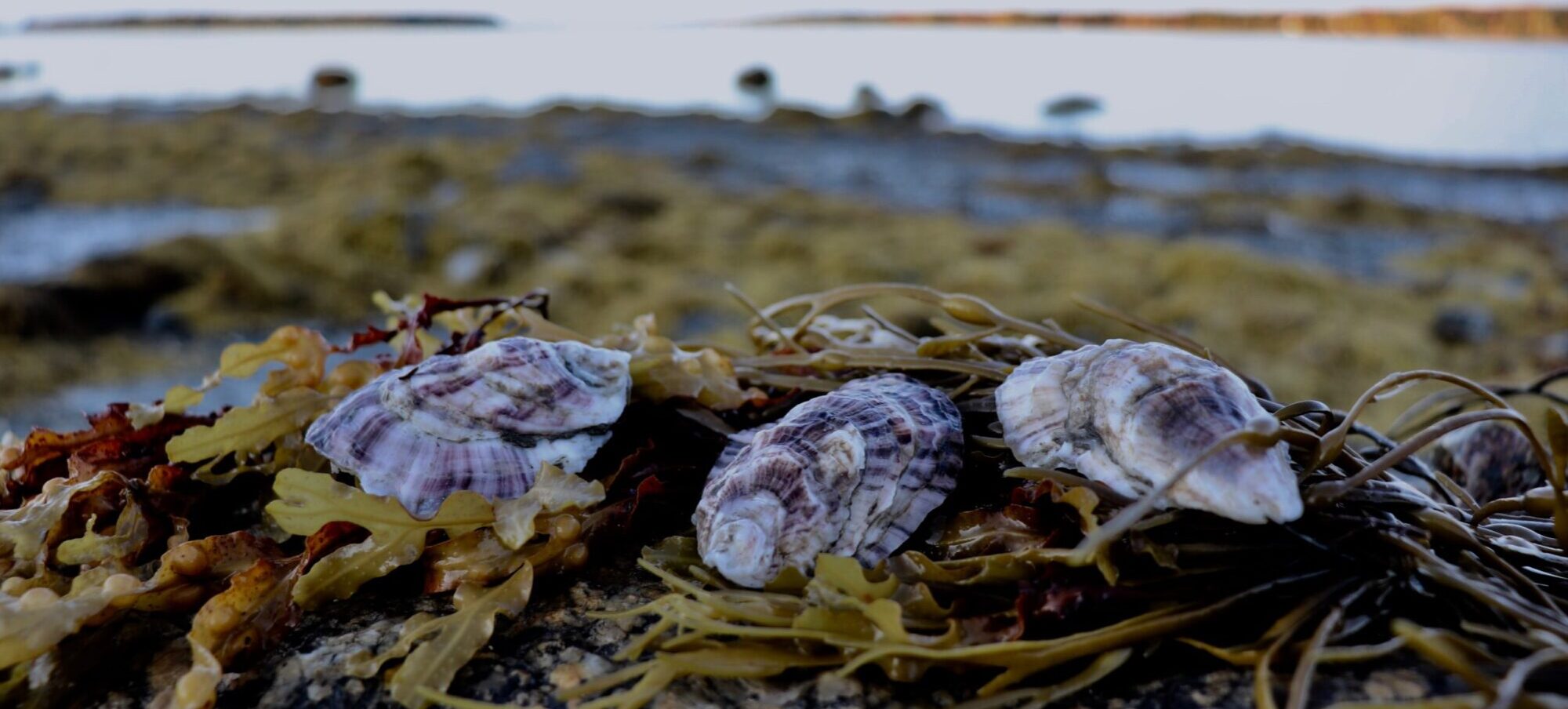Read all about the exciting things happening in Maine’s dynamic, innovative aquaculture community. From land to sea, fin fish to shellfish and everything in between – check out industry news below and learn how Maine seafood producers are building a sustainable, resilient local food system with aquaculture. Press releases, FAQs, background information, and photo and video assets are available in our online press room here.
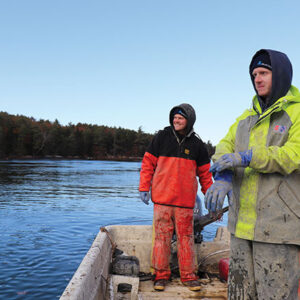 Fostering the futurE: the aquaculture industry is creating a workforce for the future
Fostering the futurE: the aquaculture industry is creating a workforce for the future
Aquaculture North America, 4/26/24 – “Last year, the Maine Aquaculture Association (MAA) and Gulf of Maine Research Institute (GMRI) launched a paid aquaculture apprenticeship program — the first in the U.S. In partnership with Educate Maine and Southern Maine Community College, the effort was funded by the U.S. Department of Agriculture National Institute of Food and Agriculture. Five men and one woman were selected for full-time, one-year apprenticeships at shellfish and seaweed farms across Maine. “It started with one week of aquaculture boot camp — courses (both a bit classroom and hands-on), getting people out on boats, making sure they know their knots, things like that before they even got to the farms,” said Christian Brayden of MAA.”
 Kelp industry continues growth in Maine
Kelp industry continues growth in Maine
News Center Maine, 4/29/24 – “The last week of April brings about a type of harvest growing in popularity in the Gulf of Maine—kelp. In what is arguably the most famous fishing region in the United States, kelp is a harvest Mainers are still learning. So, we joined a boat trip into Casco Bay to see kelp farming in action in an event hosted by the Island Institute and attended by elected officials and business leaders. The Maine Department of Marine Resources lists 35 active kelp faming leases, with 13 others pending. Many of those farmers are already commercial fishermen who decided to add some income during an otherwise slow spring.”
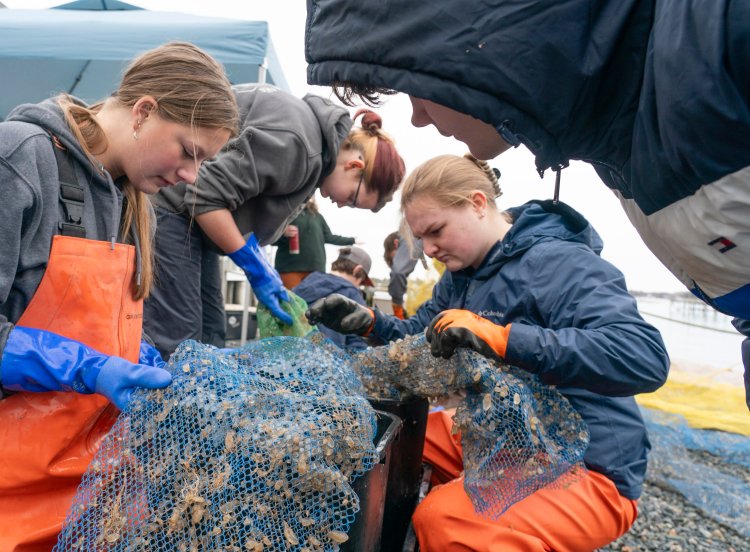 Maine researchers, students are sorting through muck and slugs to study baby scallops
Maine researchers, students are sorting through muck and slugs to study baby scallops
Portland Press Herald, 4/14/24 – “Baby scallops are easy to miss in a pile of muck or a large netted spat bag. At around one to six months old, they are less than 5 millimeters long – dwarfed by a fingernail. It takes a discerning eye to find the juvenile scallops. But researchers, fishermen, farmers and students have learned how to spot them. People from each of these groups are collaborating with the Maine Center for Coastal Fisheries, Hurricane Island Center for Science and Leadership and Colby College in the second year of a study meant to help identify how many young scallops there are off Maine’s coast, and where they’re living. The work is funded by the Atlantic States Marine Fisheries Commission.”
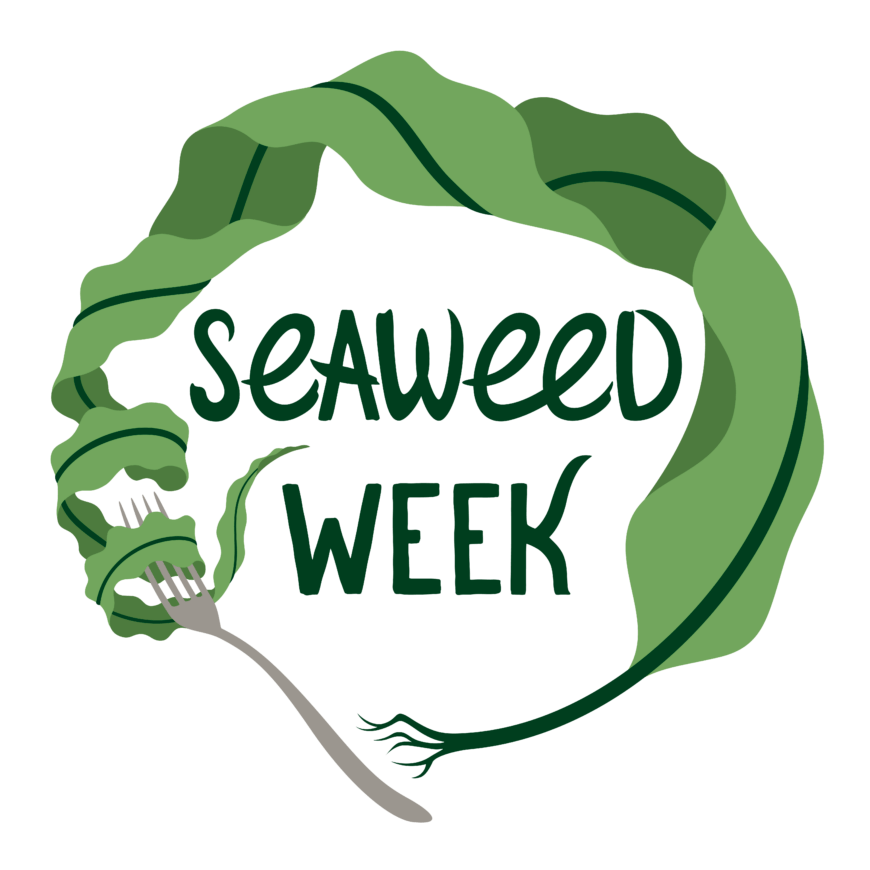 Maine Seaweed Week is a celebration—and you’re invited
Maine Seaweed Week is a celebration—and you’re invited
News Center Maine, 4/15/24 – “There’s a lot you probably don’t know about seaweed.For one thing, it grows naturally and doesn’t need to be fed, watered, or treated with pesticides. For another, it improves water quality and provides habitat for marine organisms. And third, it’s helping the coastal economy become more diverse as lobstermen and others turn to kelp farming in the winter. These are some of the informational nuggets one can pick up at the sixth annual Maine Seaweed Week, which is billed as “a food and drink festival celebrating Maine’s kelp harvest.” Josh Rogers, who runs a retail operation in Portland called Heritage Seaweed, founded the event with the aim of shining a light on an under-appreciated part of Maine’s marine environment and economy.”
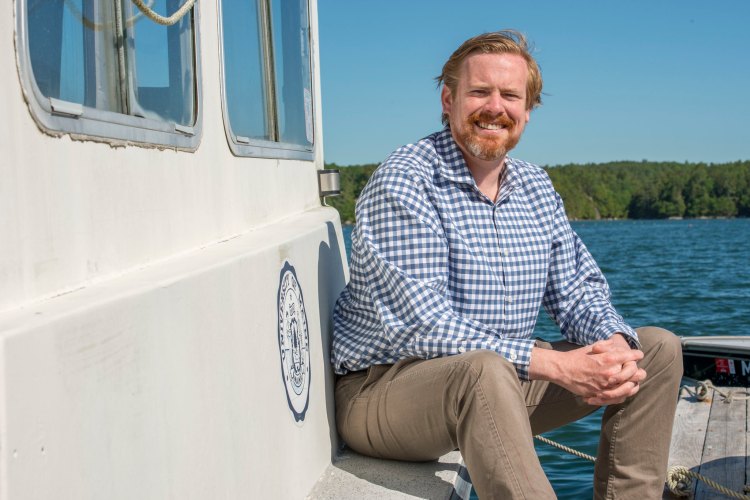 NASA satellite could help identify best places to grow oysters, scallops in Gulf of Maine
NASA satellite could help identify best places to grow oysters, scallops in Gulf of Maine
CentralMaine, 4/1/24 – “Two University of Maine researchers are betting on the smallest microorganisms in the ocean to help study the biggest issue facing Maine’s coast: climate change. And they aim to do it from space. Oceanography professor Emmanuel Boss and Damian Brady, acting director of the Darling Marine Center, are working with NASA on its PACE satellite, which launched last month and will orbit the planet for three years. The satellite is using tiny pieces of algae to collect the most detailed data on record about the color and health of the ocean. Boss said that information will help scientists study changes on a global scale.”
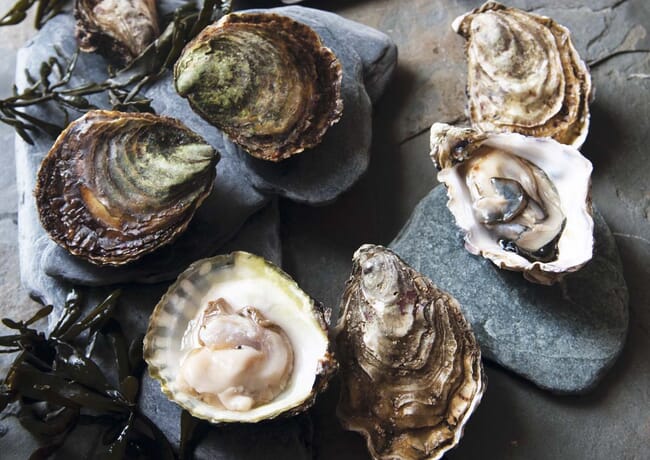 Maine’s farmed shellfish industry promises significant growth
Maine’s farmed shellfish industry promises significant growth
UMaine News, 3/4/24 – “A new report from the Gulf of Maine Research Institute has found that the Northeast region is the fastest growing market for farmed shellfish in the US, and that Maine is the fastest growing state within the Northeast. The report states that Maine has a “significant opportunity to expand its farmed shellfish industry” and that based on projections, the Maine shellfish industry could achieve revenues of over $28 million by 2028, a 40 percent growth from 2022, according to a press release from the research organization.”
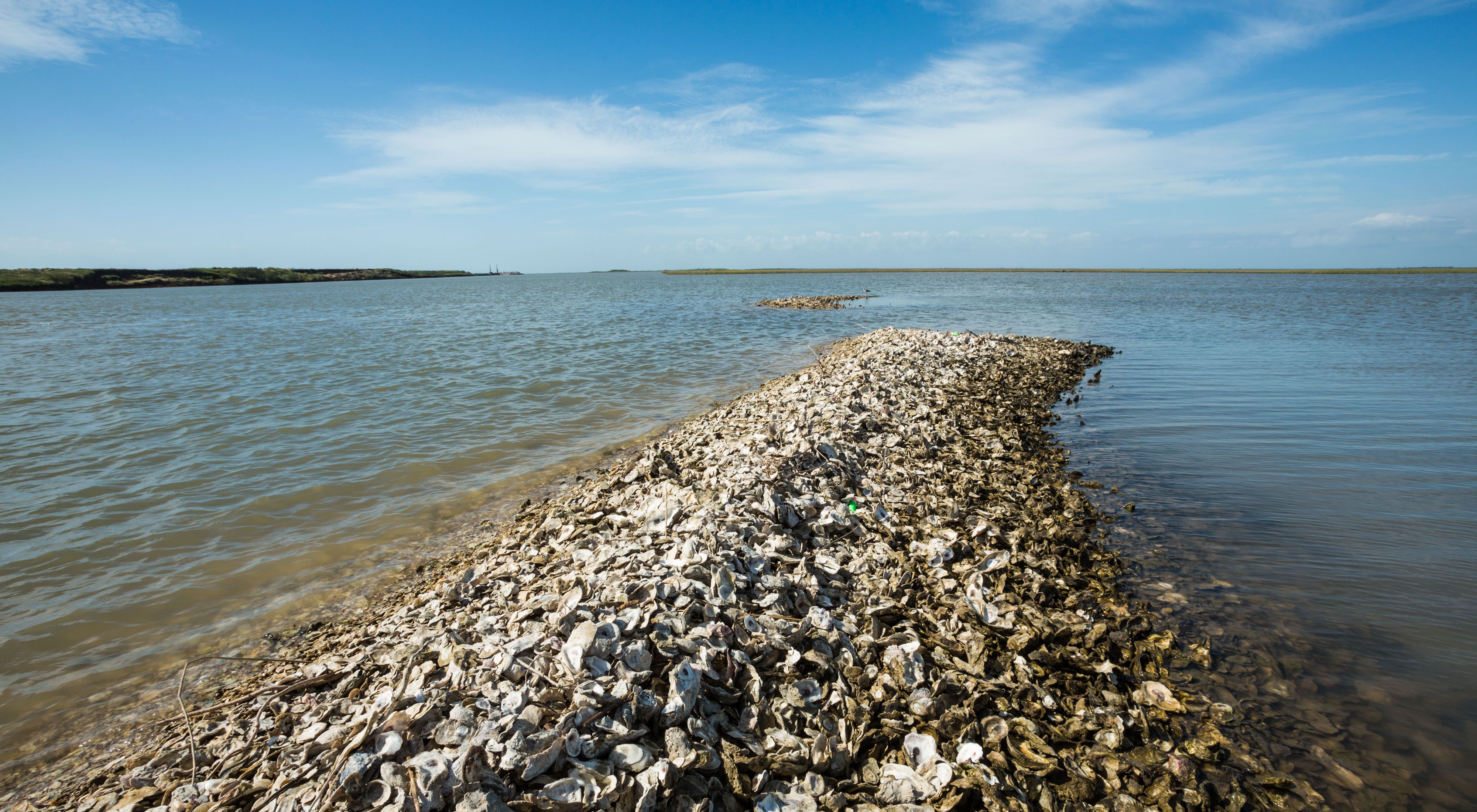 SOAR Program Announces Farmer-Led Projects to Foster Innovation, Resilience and Diversity in Shellfish Aquaculture
SOAR Program Announces Farmer-Led Projects to Foster Innovation, Resilience and Diversity in Shellfish Aquaculture
UMaine News, 1/17/24 – “A new program at the University of Maine funded by a $750,000 grant from the National Institute of Food and Agriculture aims to address education gaps and meet workforce needs in the aquaculture industry. The “Activating aquaculture technology learning through hands-on and virtual experiences” program will engage students and educators in interactive, project-based learning experiences centered around Maine aquaculture innovation and technology. Maine’s aquaculture industry faces educational barriers. A lack of curriculum, training and experiential learning opportunities make it difficult for students, educators and consumers to engage with and understand the aquaculture industry.”
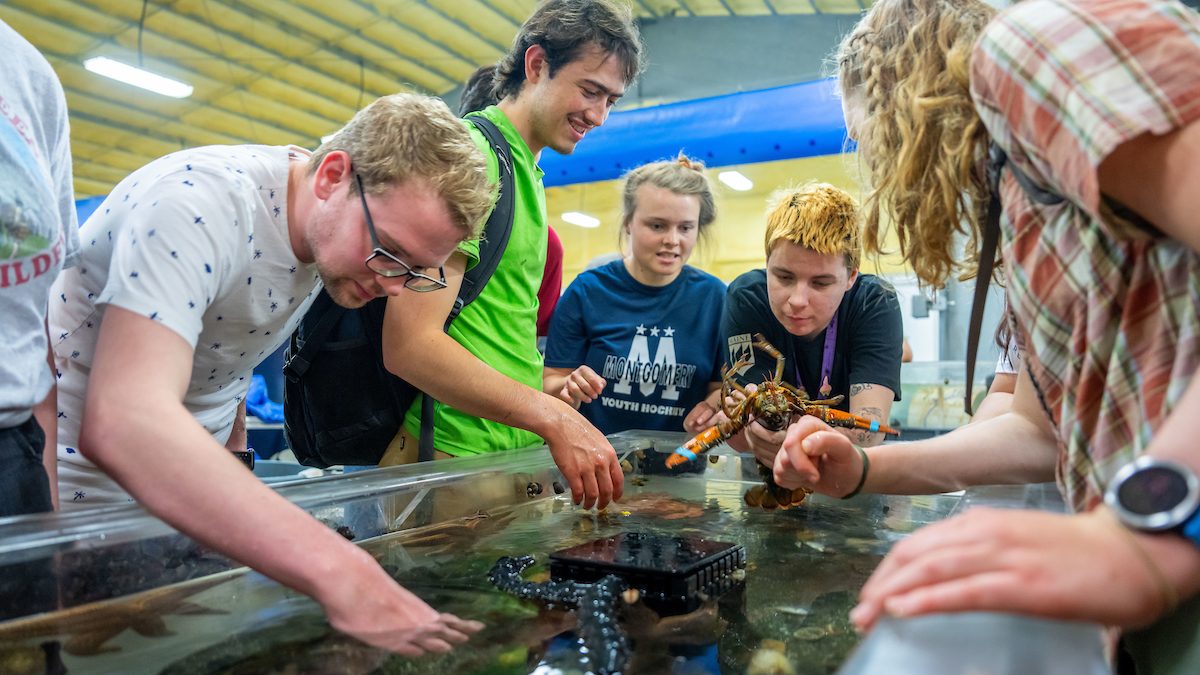 Program to transform aquaculture education through hands-on and virtual experiences
Program to transform aquaculture education through hands-on and virtual experiences
UMaine News, 1/17/24 – “A new program at the University of Maine funded by a $750,000 grant from the National Institute of Food and Agriculture aims to address education gaps and meet workforce needs in the aquaculture industry. The “Activating aquaculture technology learning through hands-on and virtual experiences” program will engage students and educators in interactive, project-based learning experiences centered around Maine aquaculture innovation and technology. Maine’s aquaculture industry faces educational barriers. A lack of curriculum, training and experiential learning opportunities make it difficult for students, educators and consumers to engage with and understand the aquaculture industry.”
